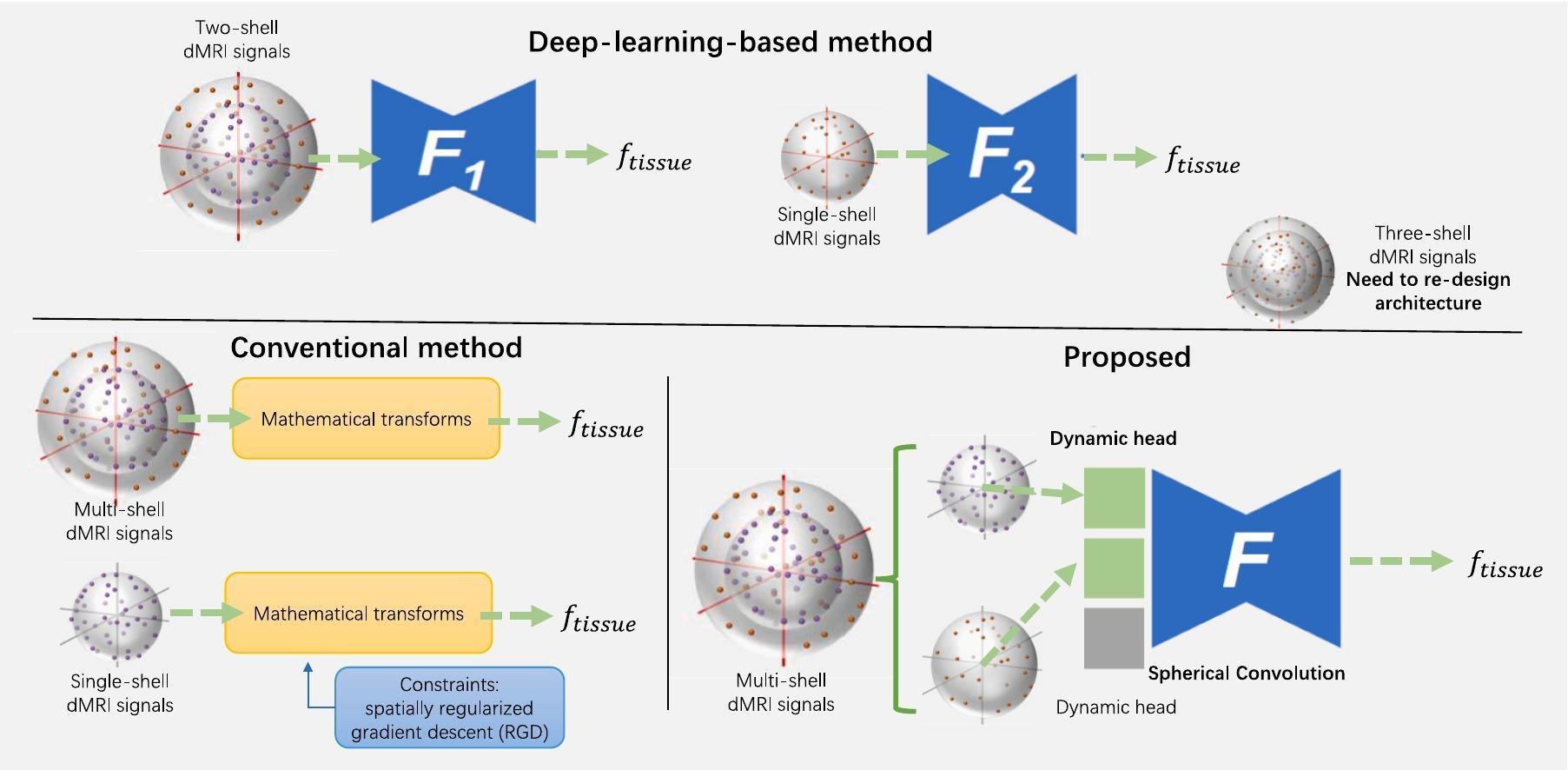Yao, Tianyuan; Archer, Derek B.; Kanakaraj, Praitayini; Newlin, Nancy; Bao, Shunxing; Moyer, Daniel; Schilling, Kurt; Landman, Bennett A.; Huo, Yuankai. “Deep learning-based free-water correction for single-shell diffusion MRI.” Magnetic Resonance Imaging, vol. 117, 2025, 110326, https://doi.org/10.1016/j.mri.2025.110326.
Free-water elimination (FWE) modeling in diffusion MRI (dMRI) is essential for accurately measuring brain tissue properties by reducing interference from free water, especially at the boundary between white matter and cerebrospinal fluid. Without this correction, free water can distort diffusion measurements, leading to inaccurate results. While current FWE models work well with multi-shell data, most clinical scans use single-shell acquisitions due to time limitations, making accurate modeling more challenging.
To address this, we developed a deep-learning framework that corrects for free-water contamination in diffusion-weighted imaging (DWI). Our model uses data-driven techniques to estimate free-water volumes across various dMRI acquisition methods, including the commonly used single-shell scans. We tested our approach on data from the Human Connectome Project Young Adults (HCP-ya), the HCP Aging dataset (HCP-a), and Brain Tumor Connectomics Data (BTC). The results show that our method outperforms previous single-shell FWE approaches, producing more reliable estimates of brain tissue properties. Additionally, the model can be fine-tuned and adapted to new datasets using b-value re-mapping. Our approach improves consistency in repeated scans, enhances the accuracy of neural pathway identification, and provides clearer visualizations of white matter structures.
